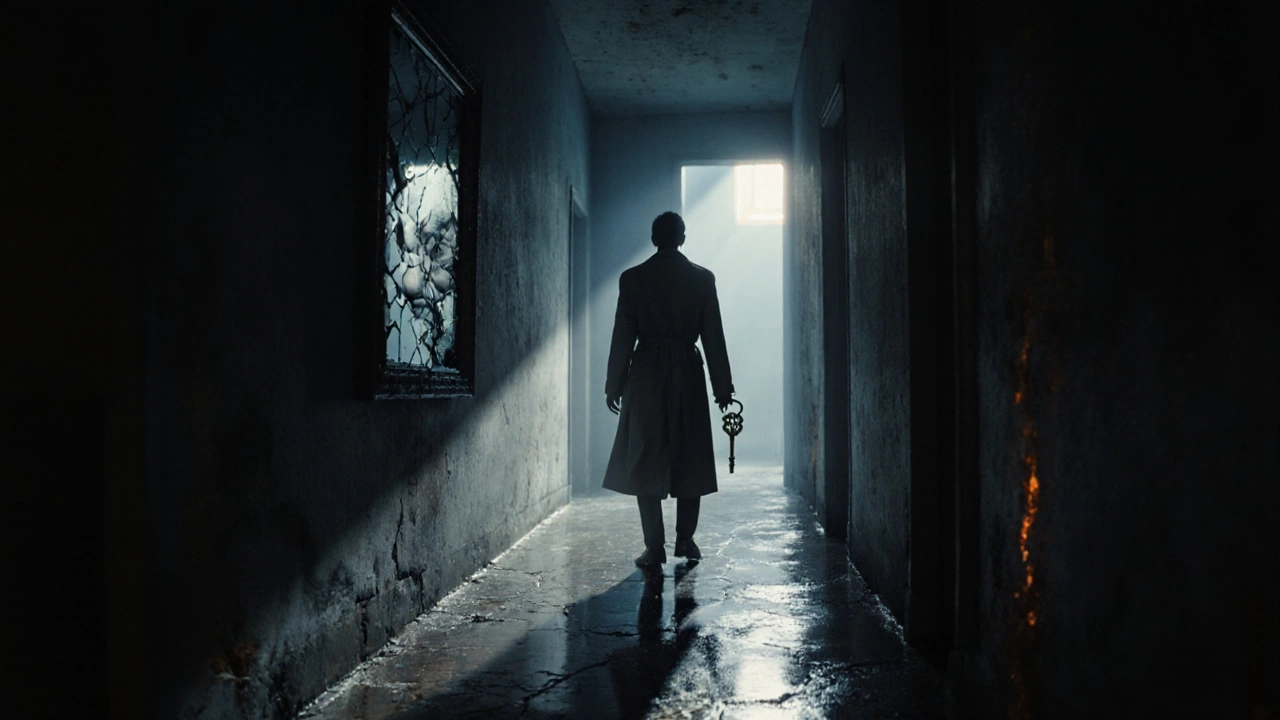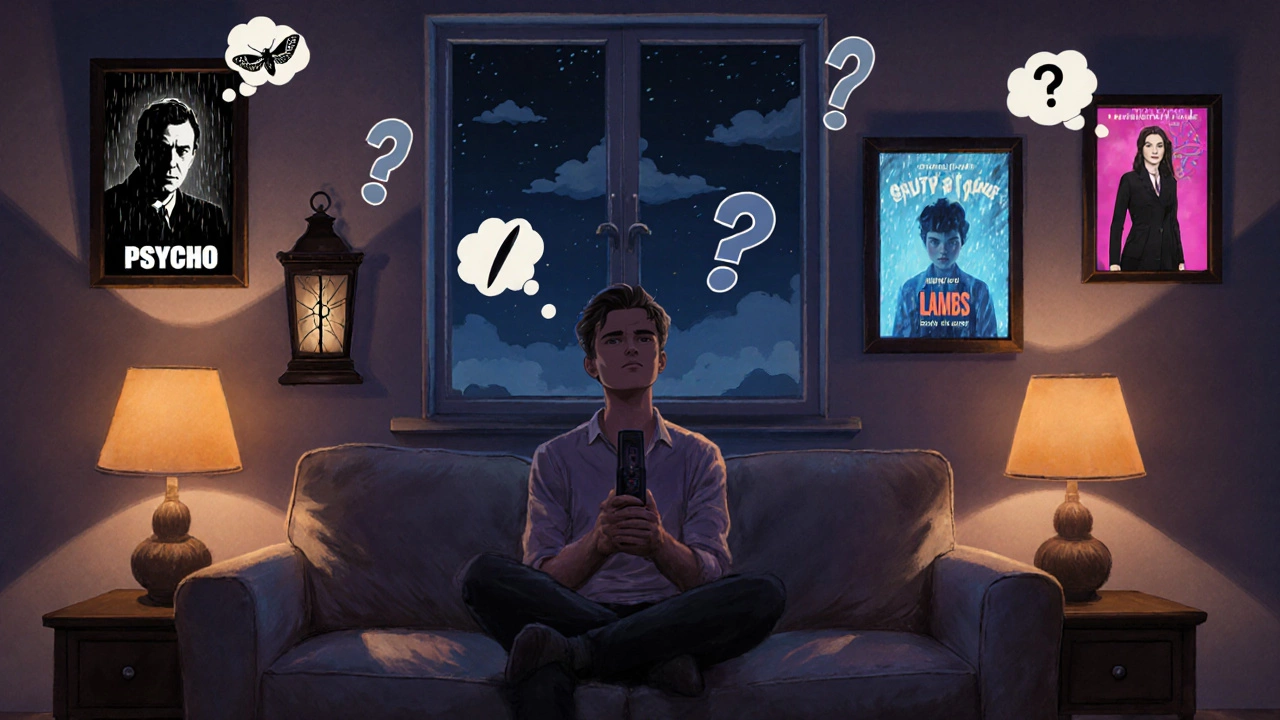
When you hear the word "thriller," you might picture car chases or gunfights. But the best psychological thriller pulls you in with mind games, unreliable narrators, and a lingering sense of unease that stays long after the credits roll. Below we break down the movies that have defined the sub‑genre, why they still work, and how to pick the one that fits your mood.
What Makes a Psychological Thriller Tick?
At its core, a psychological thriller explores the inner workings of the mind-fear, obsession, guilt, or madness. Unlike a straight‑up crime thriller that focuses on external threats, this sub‑genre turns the protagonist’s (and often the audience’s) perception into the primary source of tension. Key ingredients include:
- Unreliable perspective: The story is told from a point of view you can’t fully trust.
- Layered mysteries that reveal themselves piece by piece.
- A strong atmosphere-lighting, music, and pacing that keep you on edge.
- Complex characters whose motivations are as murky as the plot twists.
When these elements click, the film becomes more than entertainment; it’s an experience that messes with your thoughts.
How We Chose the All‑Time Greats
Our shortlist mixes classics that set the template with modern entries that pushed the boundaries. The selection criteria were:
- Critical acclaim and lasting cultural impact (Rotten Tomatoes > 85% or equivalent).
- Innovative use of psychological tension-not just jump scares.
- Influence on later filmmakers and the broader thriller landscape.
- Audience resonance-films that still spark discussion years later.
Every title on the list meets at least three of these checkpoints, making them strong contenders for the title of "best".
Top Picks Ranked
Below are the five movies that consistently top critics’ lists and fan polls. Each paragraph dives into why the film works, the mastermind behind it, and the core twist that flips the script.
Psycho (Alfred Hitchcock’s 1960 masterpiece) remains the gold standard for psychological horror. The film introduced the world to Norman Bates, a seemingly meek motel owner whose split personality is revealed in the iconic shower scene. Hitchcock’s use of black‑and‑white cinematography, Bernard Herrmann’s shrieking strings, and a narrative that kills the apparent protagonist early on-all create an unsettling rhythm that forces viewers to question every character’s motives.
Se7en (David Fincher’s 1995 gritty tale) pairs a rain‑slicked, nameless city with two detectives hunting a serial killer who bases murders on the seven deadly sins. The film’s relentless bleakness, combined with a jaw‑dropping climax-where the killer forces the detectives to choose between hope and horror-makes it a masterclass in building dread through moral ambiguity.
The Silence of the Lambs (Jonathan Demme’s 1991 Academy Award winner) blends procedural investigation with a cat‑and‑mouse psychological showdown. Clarice Starling’s interviews with Hannibal Lecter are less about clues and more about confronting one’s own darkness. The film’s elegant pacing, elegant score, and iconic dialogue (“I’m having an old friend for dinner”) cement its place in the genre.
Shutter Island (Martin Scorsese’s 2010 mind‑bender) circles a U.S. Marshal investigating a missing patient on a remote asylum. As the narrative spirals, viewers grapple with whether the protagonist is a victim of a conspiracy or his own psychosis. Scorsese’s use of hazy dreams, an 1800s soundtrack, and a final reveal that rewrites the whole story showcases how perception can be weaponized.
Gone Girl (David Fincher’s 2014 adaptation of Gillian Flynn’s bestseller) flips the classic missing‑person plot on its head. When Amy disappears, the media paints Nick as guilty, but the narrative flips when Amy’s diary reveals her own manipulative plot. The film’s commentary on media sensationalism, paired with its shifting perspectives, turns a domestic drama into a chilling study of deception.
Quick Comparison Table
| Movie | Year | Director | Core Twist | Why It Works |
|---|---|---|---|---|
| Psycho | 1960 | Alfred Hitchcock | Norman is both victim and murderer | Subverts hero archetype, iconic music |
| Se7en | 1995 | David Fincher | Final sin reveals killer’s plan | Atmospheric dread, moral paradox |
| The Silence of the Lambs | 1991 | Jonathan Demme | Lecter’s manipulation of Starling | Intimate psychological duel |
| Shutter Island | 2010 | Martin Scorsese | Protagonist’s false reality | Dream‑like visuals, unreliable narrator |
| Gone Girl | 2014 | David Fincher | Victim becomes architect of deceit | Media critique, dual POV |
How to Pick the Right Thriller for Your Mood
Even the best films can feel off if you’re not in the right headspace. Here’s a quick decision guide:
- Need classic suspense? Start with Psycho-its pacing is slower but the tension builds steadily.
- Craving gritty modern noir? Se7en delivers a bleak cityscape and a shocking finale.
- Want a cerebral cat‑and‑mouse game? The Silence of the Lambs balances intellect with horror.
- Looking for a mind‑bending twist? Shutter Island forces you to question reality.
- Enjoy social commentary mixed with intrigue? Gone Girl mixes marriage drama, media hysteria, and deception.
Pick the one that aligns with the emotional tone you’re after, and you’ll get the full impact of the genre.
Beyond Movies: Psychological Thrillers in Books and TV
If you’ve exhausted the film list, the same principles apply to literature and series. Gillian Flynn’s novel Sharp Objects (and its HBO adaptation) layers small‑town secrets with a protagonist’s troubled past. The TV show Mindhunter delves into the early days of criminal profiling, turning real‑life interviews into psychological tension. Exploring these mediums keeps the adrenaline pumping while expanding your appreciation for the craft.

Common Pitfalls When Choosing a Thriller
Even seasoned fans can stumble into traps that ruin the experience:
- Choosing based solely on hype: A film may have a massive marketing budget but lack the subtle psychological layers that define the sub‑genre.
- Ignoring tone: Some thrillers lean toward horror; others stay grounded in procedural drama. Mis‑matching tone can lead to disappointment.
- Skipping reviews: A quick glance at audience scores can reveal whether the twist feels earned or forced.
Take a moment to read a couple of critic excerpts before hitting play-you’ll avoid most of these missteps.
Frequently Asked Questions
What defines a psychological thriller versus a regular thriller?
A psychological thriller focuses on mental and emotional tension, often using unreliable narrators and internal conflicts. A regular thriller leans more on external action, chases, and clear‑cut villains.
Are there any newer films (2020‑2025) that belong in this list?
While the classics dominate, recent titles like Last Night in Soho (2021) and The Night House (2021) have earned praise for their mind‑twisting narratives, though they haven’t yet reached the universal acclaim of the five films highlighted.
Do I need to watch these movies in release order?
No. Each stands alone and offers a unique experience. Feel free to start with the mood you’re after, as described in the decision guide.
Which directors are most associated with the psychological thriller?
Alfred Hitchcock, David Fincher, Martin Scorsese, and Jonathan Demme have repeatedly delivered genre‑defining work, shaping how suspense is built around the human mind.
Can I find strong psychological thriller elements in TV series?
Absolutely. Series like Mindhunter, Sharp Objects, and True Detective (Season 1) weave psychological tension across episodes, often delivering deeper character studies than a two‑hour film.
Next Steps
Ready to binge? Grab a snack, dim the lights, and start with the film that matches your vibe. After you finish, revisit the comparison table to see which elements resonated most. If you’re hungry for more, dive into the suggested books and series-they’ll keep your mind racing long after the screen goes dark.


